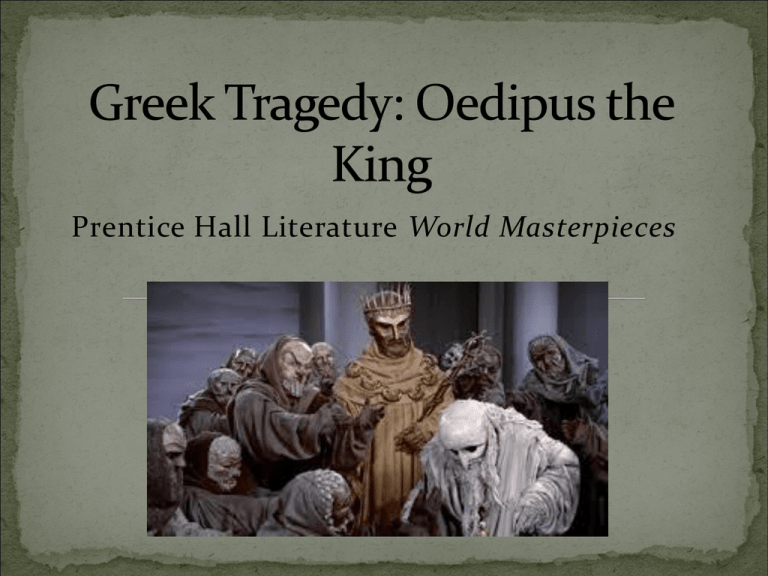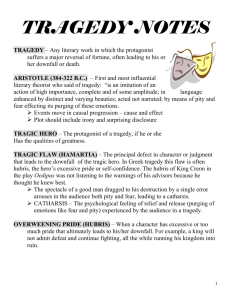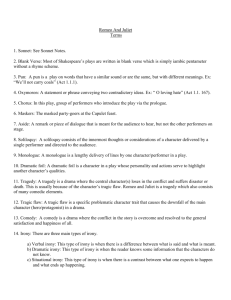Greek Tragedy: Oedipus the King
advertisement

Prentice Hall Literature World Masterpieces enjoyed a comfortable life in a well-to-do family age 28--won the wreath in his first play competition --Antigone wrote 123 plays/7 survived intact end of Sophocles' life--Peloponnesian War/time of political turmoil (tragedy) - a serious drama featuring a noble, dignified main character (often a member of royalty) who strives to achieve something and is ultimately defeated (tragic flaw) - a character flaw or weakness that eventually leads to a character's downfall Aristotle’s Definition of a Tragic Hero 1. Should be ruler or leader 2. Of good character (neither exceptionally virtuous nor exceptionally evil) 3. Tragic hero goes through one or more reversals of fortune, leading to a final recognition of truth Aristotle’s Definition of a Tragic Hero (cont.) 4. His/her misfortune brought about by some error of judgment or frailty – “hamartia” (tragic flaw) 5. Tragic hero experiences profound suffering in this process 6. Audience should be moved by pity and fear Festival of Dionysus 4 day celebration in honor of Dionysus, god of wine and revelry plays were performed/competition—highlight of the Festival Also called Oracle of Apollo Located in Delphi; priests/priestesses of Apollo were believed to have divine knowledge from Apollo Common themes in Greek tragedy involve characters who attempt to circumvent the prophecies of Apollo, always unsuccessfully Theme: No mortal can avoid his/her fate Irony is the contrast between what appears to be and what actually exists. 3 Types of Irony..... (verbal irony)—when a character says one thing but means another (situational irony)—what happens is different from what’s expected to happen (dramatic irony)—the audience or reader is aware of critical information that a character does not know Sophocles wrote the 3 plays over a 36 year period Antigone was written first 1. --Oedipus Rex (written second) 2. --Oedipus at Colonus (written last) 3. --Antigone (written first)




